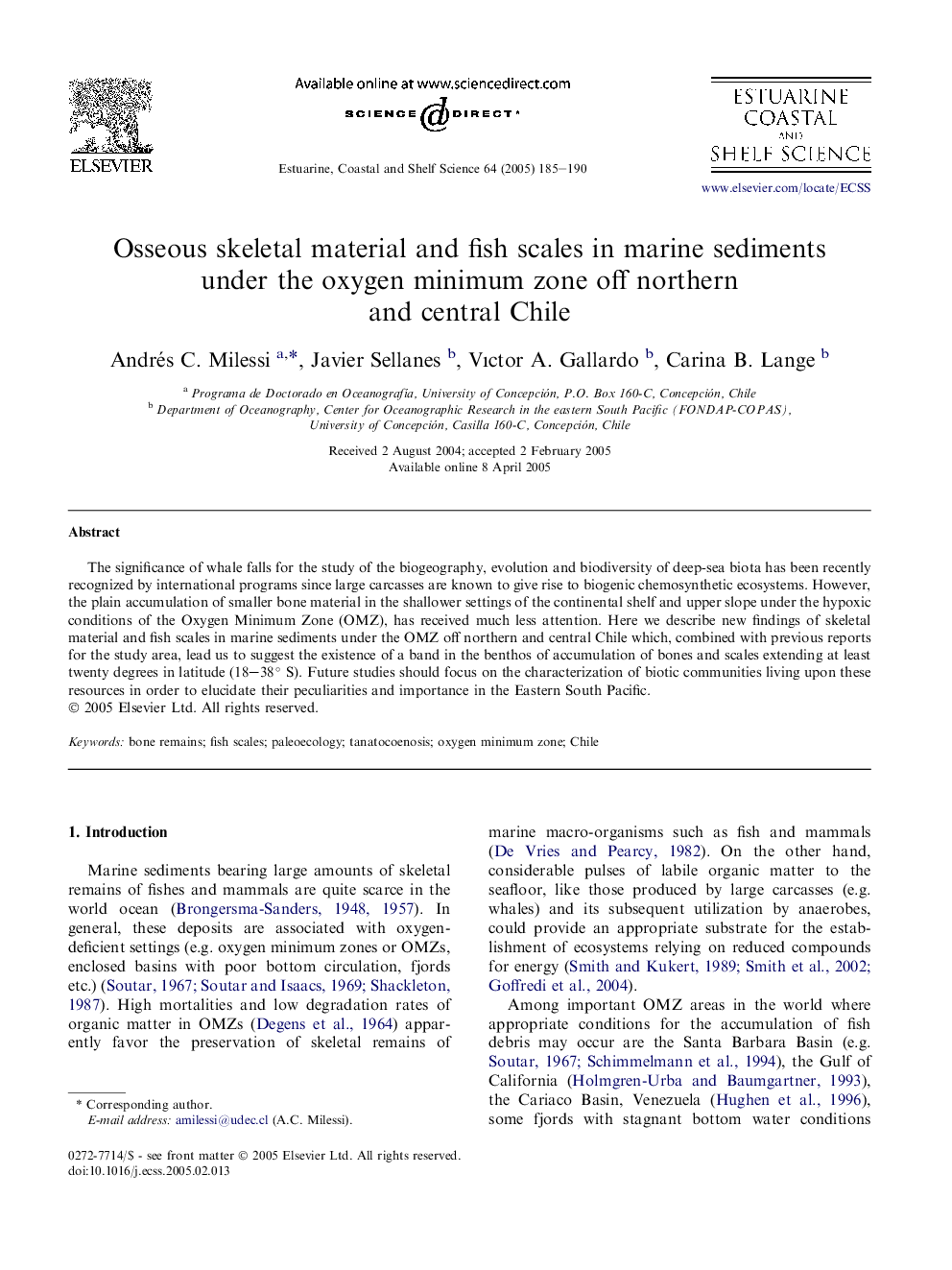| Article ID | Journal | Published Year | Pages | File Type |
|---|---|---|---|---|
| 9480565 | Estuarine, Coastal and Shelf Science | 2005 | 6 Pages |
Abstract
The significance of whale falls for the study of the biogeography, evolution and biodiversity of deep-sea biota has been recently recognized by international programs since large carcasses are known to give rise to biogenic chemosynthetic ecosystems. However, the plain accumulation of smaller bone material in the shallower settings of the continental shelf and upper slope under the hypoxic conditions of the Oxygen Minimum Zone (OMZ), has received much less attention. Here we describe new findings of skeletal material and fish scales in marine sediments under the OMZ off northern and central Chile which, combined with previous reports for the study area, lead us to suggest the existence of a band in the benthos of accumulation of bones and scales extending at least twenty degrees in latitude (18-38° S). Future studies should focus on the characterization of biotic communities living upon these resources in order to elucidate their peculiarities and importance in the Eastern South Pacific.
Related Topics
Physical Sciences and Engineering
Earth and Planetary Sciences
Geology
Authors
Andrés C. Milessi, Javier Sellanes, Vı´ctor A. Gallardo, Carina B. Lange,
